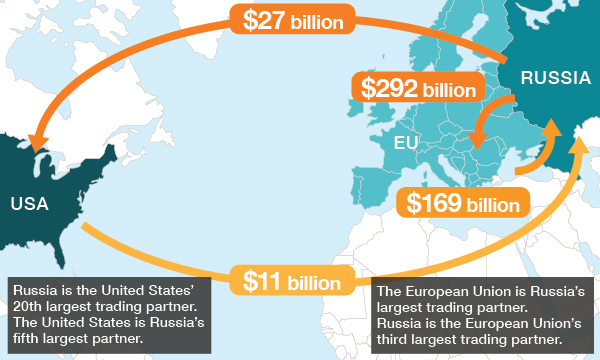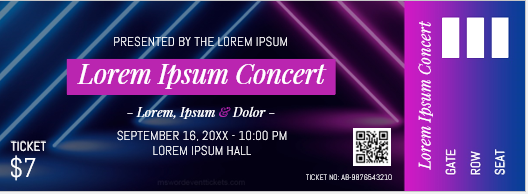New US Sanctions: Targeting Countries With Restrictive Social Media Laws

Table of Contents
Understanding the Rationale Behind the New Sanctions
The rationale behind these new US sanctions targeting countries with restrictive social media laws rests on several key pillars: national security, human rights, and the promotion of democratic values. The US government views widespread internet censorship and the suppression of online dissent as serious threats to global stability and the free exchange of information.
-
Protecting National Security: The sanctions aim to address concerns about misinformation and disinformation campaigns originating from countries with restrictive social media policies. These campaigns can destabilize democratic processes and pose a risk to national security interests globally.
-
Upholding Human Rights: Restricting access to social media platforms violates fundamental human rights, including freedom of expression and access to information. The US government argues that these restrictions stifle dissent and prevent citizens from participating fully in democratic processes.
-
Promoting Democratic Values: The actions are framed within a broader US foreign policy strategy promoting internet freedom and open societies. The US believes that free and open access to information is essential for the development and maintenance of democratic institutions.
-
Deterrence: A key goal is to deter other countries from adopting similar repressive policies. By imposing sanctions, the US hopes to signal that such actions will have serious consequences.
-
Strengthening Global Internet Freedom: The US government views these sanctions as a necessary step in the global struggle against digital authoritarianism and the promotion of a more open and accessible internet.
Specific Countries Targeted by the Sanctions
While the exact list of countries and individuals targeted by these sanctions may evolve, it's crucial to understand the context in which these measures are applied. The US government typically focuses on countries with demonstrably restrictive social media policies and a history of human rights violations. Examples might include (but are not limited to) countries like Myanmar, China, Russia, and Iran. Sanctions are tailored to the severity of the violations and may include:
-
Targeted Sanctions: These sanctions typically focus on specific individuals or entities directly responsible for implementing or enforcing restrictive social media laws.
-
Asset Freezes: This involves freezing assets held in US jurisdictions or by US persons.
-
Travel Bans: This restricts travel to the United States for those sanctioned.
-
Visa Restrictions: This makes it more difficult for sanctioned individuals to obtain visas to travel internationally.
The specific details of the sanctions applied to each country vary depending on the nature and severity of the social media restrictions in place. For example, a country with a complete ban on certain platforms might face more extensive sanctions than a country with more limited restrictions.
The Effectiveness and Challenges of Sanctions
The effectiveness of sanctions in promoting internet freedom is a complex and often debated topic. While sanctions can exert significant economic and political pressure, their effectiveness varies depending on various factors.
-
Past Sanctions and Internet Freedom: Analyzing past sanctions imposed for similar reasons provides valuable insights into their effectiveness. Studies and reports from organizations focused on human rights and internet freedom can illuminate the impact of sanctions in changing policies.
-
Unintended Consequences: Sanctions can lead to unintended consequences, such as economic hardship for ordinary citizens. It's crucial to weigh the potential benefits against the potential harms.
-
Alternative Approaches: Diplomatic pressure, international cooperation, and support for civil society organizations working on internet freedom are alternative approaches that can complement or even replace sanctions in certain contexts.
-
Enforcement Challenges: Effectively enforcing sanctions can be challenging, particularly when dealing with countries that lack robust legal systems or cooperate with each other to circumvent sanctions.
International Response and Cooperation
The US sanctions on countries with restrictive social media laws have elicited varied responses from the international community. Some countries may support the US's actions, aligning with their commitment to internet freedom and human rights. Others may criticize the sanctions, arguing they are counterproductive or infringe on national sovereignty.
-
Multilateral Cooperation: There's potential for increased multilateral cooperation to address internet censorship. International organizations and other countries can work together to put pressure on governments to reform their policies.
-
EU Sanctions: The European Union might align its sanctions with those of the US, creating more widespread pressure.
-
UN Resolutions: The UN Human Rights Council can issue resolutions condemning internet censorship, adding weight to international calls for reform.
-
Human Rights Organizations: Organizations like Human Rights Watch and Amnesty International play a crucial role in monitoring and reporting on internet freedom violations, influencing policy debates and public opinion.
Conclusion
The new US sanctions targeting countries with restrictive social media laws represent a significant step in the global fight for digital freedom. While the effectiveness of sanctions remains a complex issue, the move signals a growing international consensus that internet censorship and digital authoritarianism are unacceptable threats to human rights and democracy. Understanding the nuances of these sanctions and their implications for internet freedom is critical.
Call to Action: Stay informed about developments regarding these sanctions and the ongoing struggle for internet freedom. Learn more about the impact of restrictive social media laws and how you can support organizations working to promote digital rights and oppose social media restrictions worldwide. Understanding the implications of these country-specific sanctions is crucial for navigating the evolving landscape of internet freedom.

Featured Posts
-
 French Open Norries Shock Win Djokovics Smooth Progression
May 30, 2025
French Open Norries Shock Win Djokovics Smooth Progression
May 30, 2025 -
 Donde Esta La Pop Up Store De Bts Fechas Ubicacion Y Acceso Para Army
May 30, 2025
Donde Esta La Pop Up Store De Bts Fechas Ubicacion Y Acceso Para Army
May 30, 2025 -
 Ticketmaster Warning Fake Ticket Sellers Costing Fans Big Money
May 30, 2025
Ticketmaster Warning Fake Ticket Sellers Costing Fans Big Money
May 30, 2025 -
 Gorillaz House Of Kong Exhibition Invades Londons Copper Box Arena
May 30, 2025
Gorillaz House Of Kong Exhibition Invades Londons Copper Box Arena
May 30, 2025 -
 Das Erfolgsgeheimnis Von Steffi Graf Und Andre Agassi Im Pickleball
May 30, 2025
Das Erfolgsgeheimnis Von Steffi Graf Und Andre Agassi Im Pickleball
May 30, 2025
Latest Posts
-
 Fox19 Meteorologist Finds New Part Time Role In Cleveland
May 31, 2025
Fox19 Meteorologist Finds New Part Time Role In Cleveland
May 31, 2025 -
 Guardians Opening Day Examining The Historical Weather Patterns
May 31, 2025
Guardians Opening Day Examining The Historical Weather Patterns
May 31, 2025 -
 Who Will The Browns Draft At No 2 Mel Kiper Jr S Projection
May 31, 2025
Who Will The Browns Draft At No 2 Mel Kiper Jr S Projection
May 31, 2025 -
 Northeast Ohio Facing Strong Thunderstorm Threat Latest Forecast Updates
May 31, 2025
Northeast Ohio Facing Strong Thunderstorm Threat Latest Forecast Updates
May 31, 2025 -
 Is Guardians Opening Day Always So Cold A Weather History Analysis
May 31, 2025
Is Guardians Opening Day Always So Cold A Weather History Analysis
May 31, 2025
